
Ten buildings that became embroiled in legal battles
Following the news that Tate Modern has lost its lengthy court battle against Neo Bankside residents over privacy, we look back on other buildings that became the subject of legal disputes.
Legal showdowns and court cases over accessibility, injuries, building damage, planning and project management feature in this roundup – from the shocking to the downright bizarre.
Read on for 10 buildings that have been involved in legal battles:
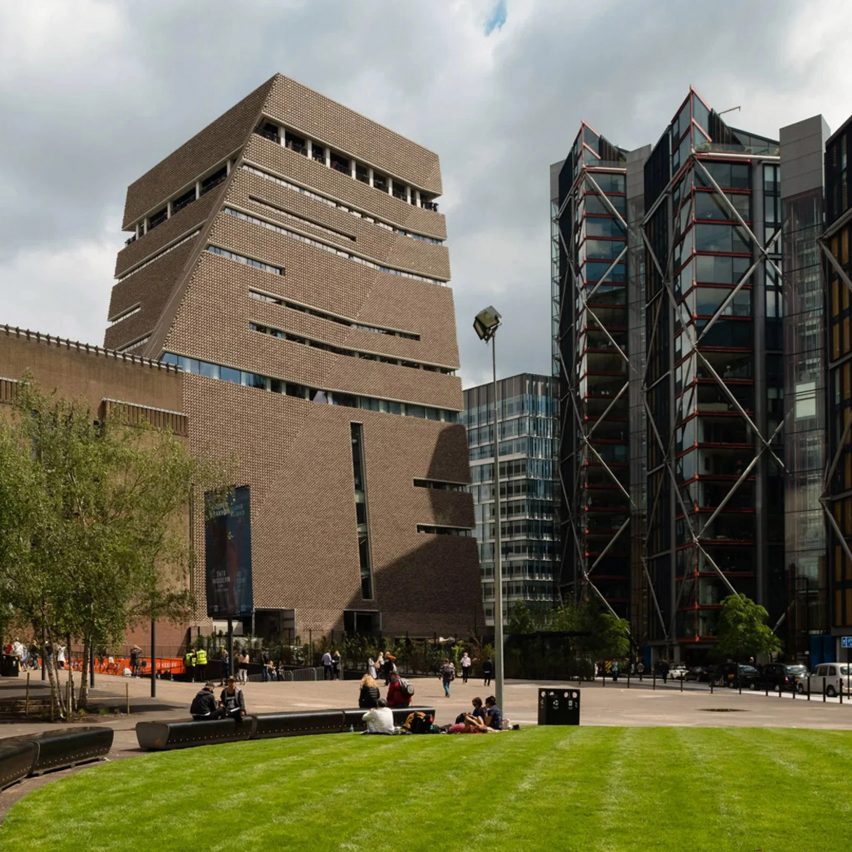
Tate Modern extension, UK, by Herzog & de Meuron
The Tate Modern extension designed by Herzog & de Meuron became the subject of a marathon legal dispute after residents of the nearby Neo Bankside flats, by RSHP, complained that the gallery's viewing platform was invading their privacy.
The High Court and the Court of Appeal dismissed the residents' claims in 2019 and 2022 respectively, but on 1 February 2023, a majority judgement by the UK's Supreme Court overturned these dismissals and ruled in favour of the residents, determining that the viewing gallery prevents them from enjoying their homes.
The case has now been returned to the High Court to determine a solution.
Read more about the Tate Modern extension ›

Designed as a tourist attraction for Los Angeles thrill-seekers, Skyslide was a glass slide that connected the 70th and 69th floors of the 72-storey US Bank Tower.
Soon after it opened, a number of people sued the developers and operators of the slide for injuries, including one woman who claimed to have broken her ankle sliding down the attraction at speed.
The slide closed soon after and it was reported that the case between the injured woman and the building manager was settled. Current plans to renovate the building involve axing the slide.
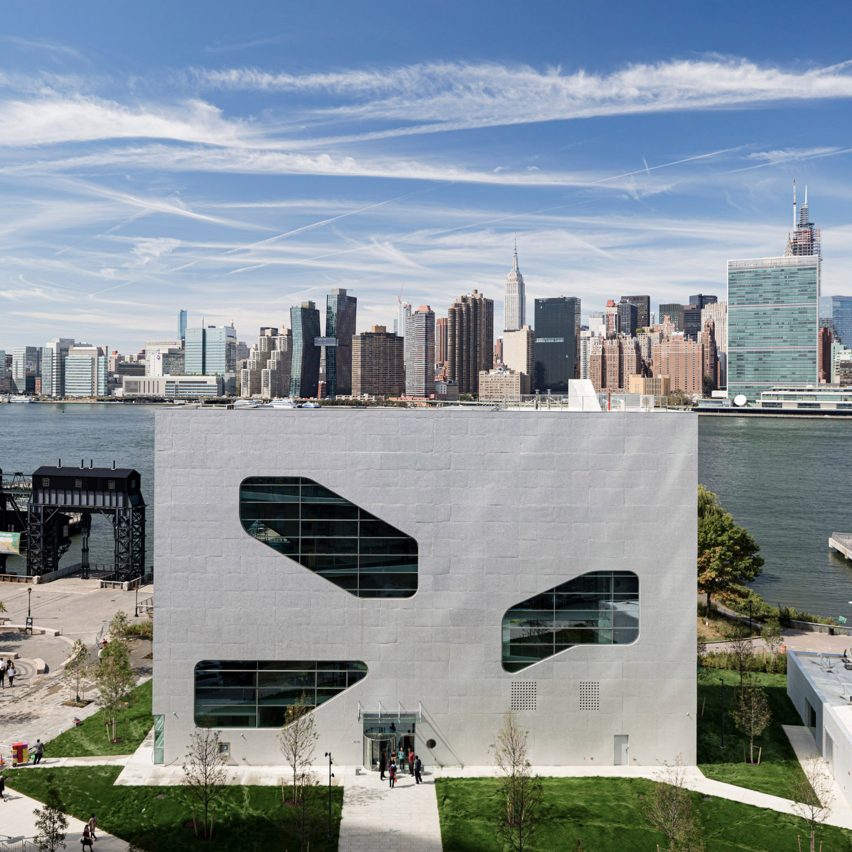
Hunters Point Library, USA, by Steven Holl Architects
In 2019, the newly opened Hunters Point Library in New York's Long Island City (above and top) came under fire from non-profit organisation Disability Rights Advocates (DRA), which argued that the building discriminated against people with mobility disabilities as three areas of shelving were accessible only by stairs.
Other alleged issues with the Steven Holl Architects-designed building included its panoramic views being only accessible from the staircase, and the fact that there was only one elevator which didn't stop at every level.
The DRA filed a class action lawsuit against the library and the City of New York for violating the Americans with Disabilities Act. According to DRA's website, the case is still ongoing.
Read more about Hunters Point Library ›
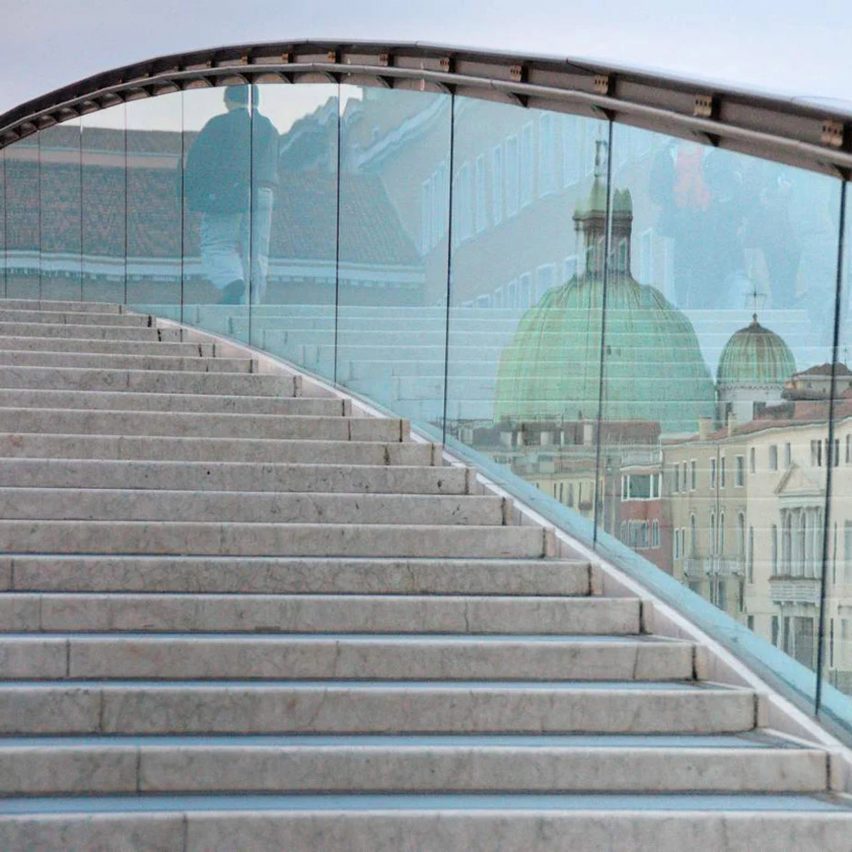
Ponte della Costituzione bridge, Italy, by Santiago Calatrava
Designed by Spanish architect Santiago Calatrava, the Ponte della Costituzione bridge in Venice has been hit with multiple controversies since it opened in 2008.
In 2013, a mobility lift was added to the stepped bridge after it was criticised for its lack of wheelchair access, but the lift was ordered to be removed by the Court of Auditors six years later for being defective. Tempered glass on the floor of the steps was also criticised for being overly slippery, causing regular pedestrian falls.
Although Calatrava maintained that the glass paving originally installed complied with regulations and had by signed off by local authorities, the court accused him in 2019 of "gross negligence" during the design of the bridge and fined the architect €78,000.
The city of Venice's next step to reduce falls on the bridge is to replace the glass floor segments with stone.
Read more about the Ponte della Costituzione bridge ›
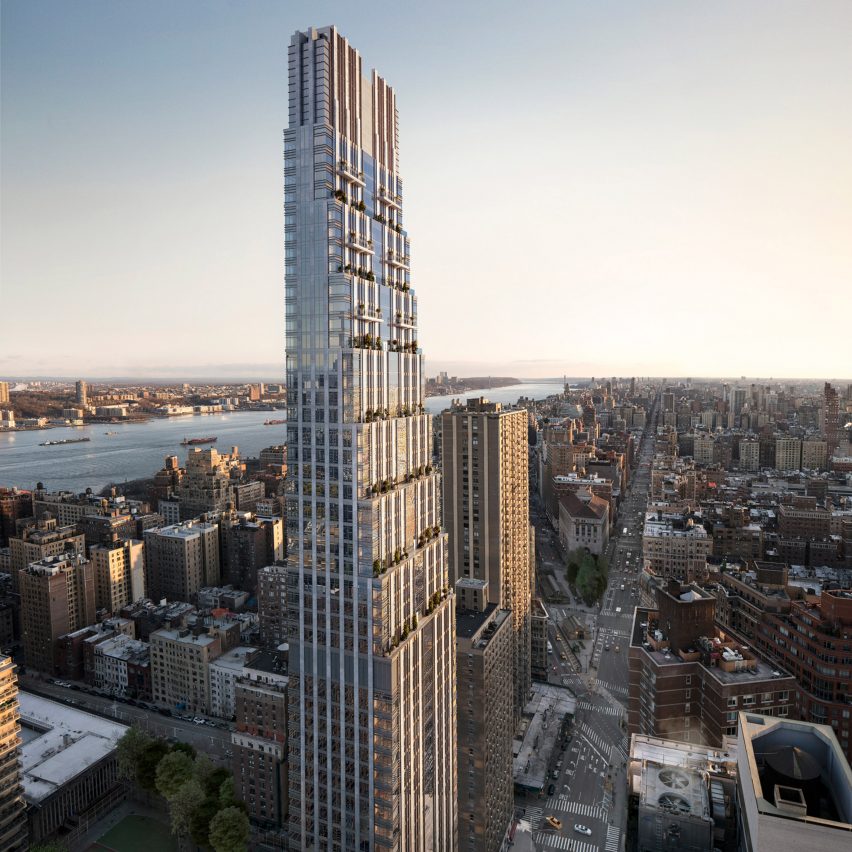
200 Amsterdam, USA, by Elkus Manfredi Architects
Developers of the 200 Amsterdam skyscraper in New York took legal action in 2020 to appeal against a court ruling that they must reduce the partially-built skyscraper's height by 20 storeys.
Following protests from community groups, the court had decided that a permit for the building to climb to 52 floors should not have been issued as it exceeded the zoning limit.
Construction continued through the dispute, however, and in March 2021 the court decision was reversed. Construction was completed later that year with no changes to the number of storeys.
Read more about 200 Amsterdam ›
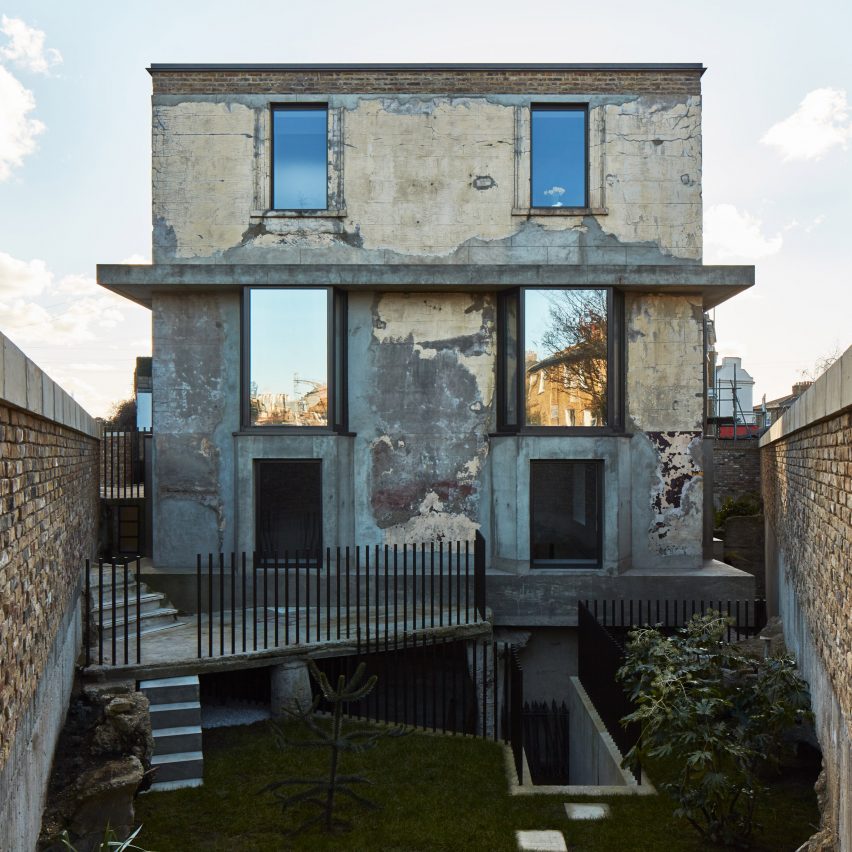
Mole House, UK, by Adjaye Associates
Retired civil engineer William Lyttle, nicknamed the Mole Man, illegally dug a series of tunnels under his home in east London over a period of 40 years, running eight metres-deep and 20 metres-long in all directions.
In 2006 Lyttle received a court order evicting him from the house while engineers filled the holes with cement, for which he was ordered to cover the cost.
Adjaye Associates transformed the abandoned home in 2020, adding multiple entrances and exits to the house in homage to Lyttle, who passed away in 2010.
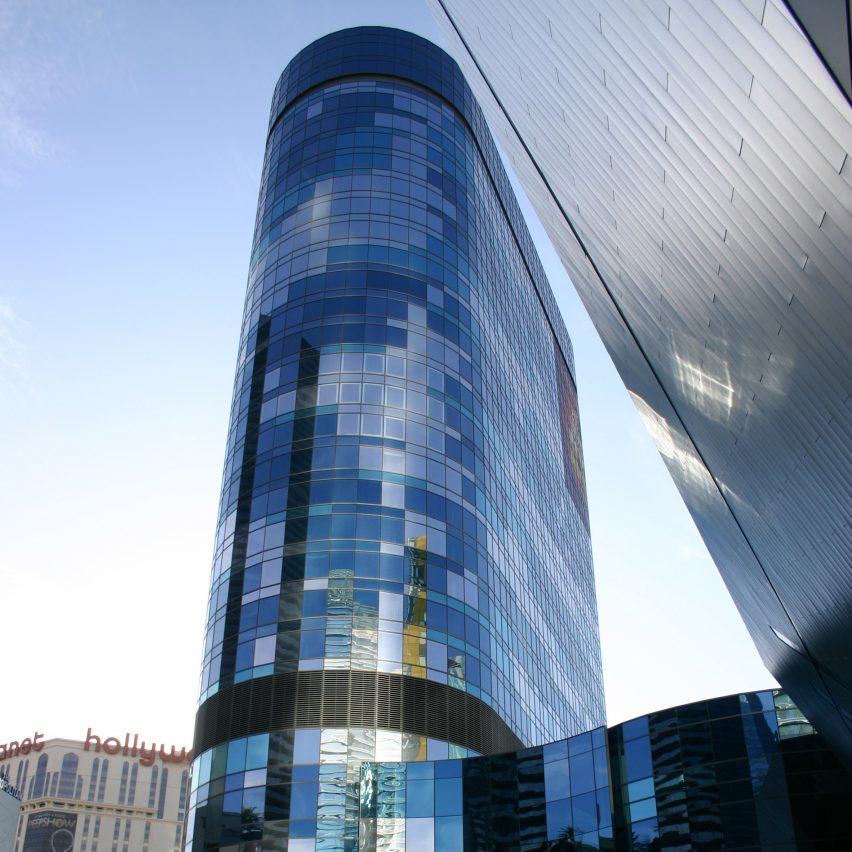
Harmon Hotel, USA, by Foster + Partners
Building owner MGM Resorts International and contractor Tutor Perini became locked in a dispute over who was responsible for the severe structural defects at the Foster + Partners-designed Harmon Hotel in Las Vegas.
In 2014 while it was still under construction, a court ruled that the building should be demolished after experts claimed it was at risk of toppling in an earthquake. The building was subsequently razed the following year, with the legal dispute ending in a settlement.
Read more about Harmon Hotel ›
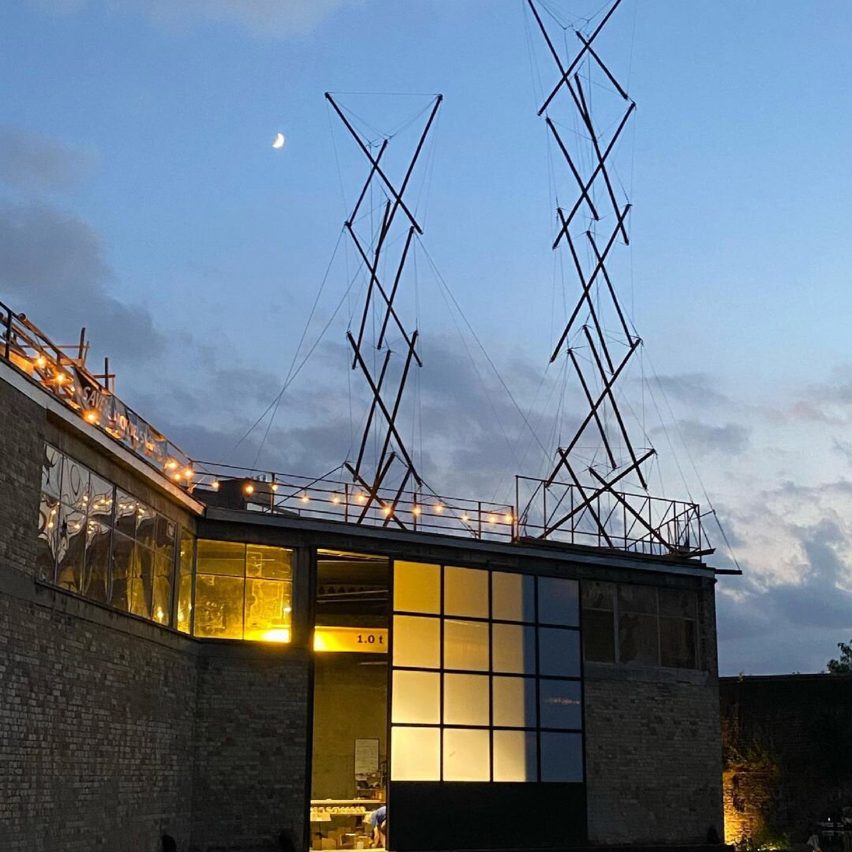
All Along the Watchtower, UK, by Project Bunny Rabbit
As part of the 2021 Antepavilion architecture charity competition, design collective Project Bunny Rabbit created a tensegrity structure made from bamboo poles and steel cables, which was displayed on Antepavilion's arts venue rooftop in east London.
On 25 June that year, more than 40 police officers raided the building and arrested Antepavilion organisers. It is thought that officers believed the building was being used by environmental protest group Extinction Rebellion, which had deployed similar tensegrity structures to block roads during demonstrations.
In January this year, the High Court ruled that the 2021 police raid was unlawful and the Metropolitan Police was ordered to pay compensation for damage caused by the forced entry.
Antepavilion has also had conflicts with the local council. Its 2022 competition was cancelled and postponed indefinitely after planning disagreements with Hackney Council, which claimed planning permission was needed before building any new structures on the venue's roof or decking.
Read more about All Along the Watchtower ›
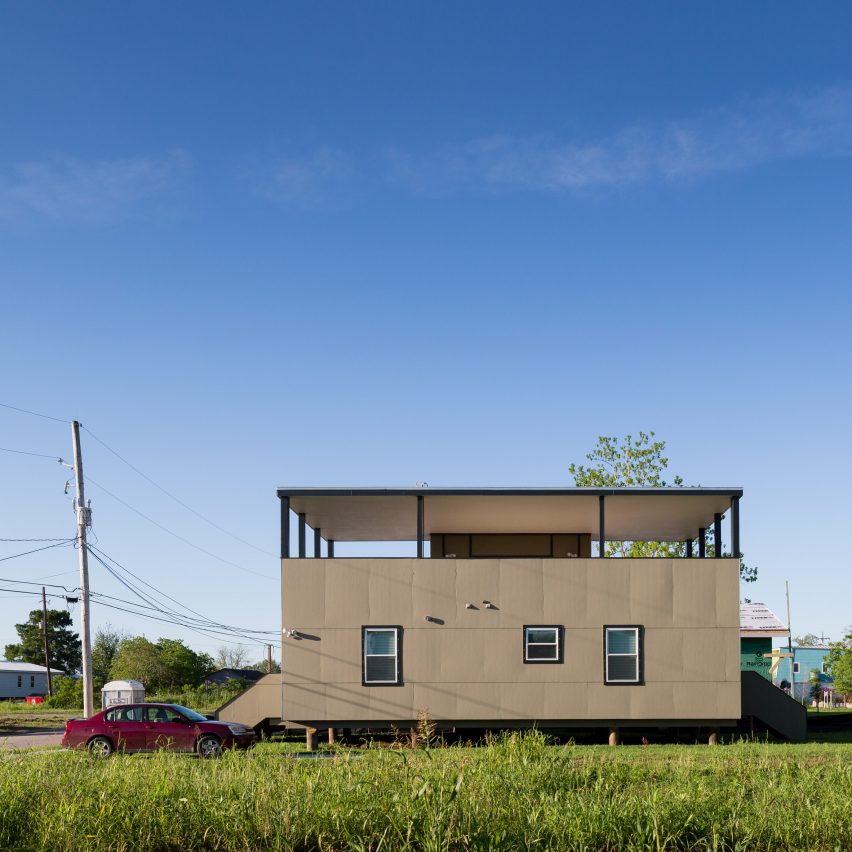
Make It Right houses, USA, by multiple architects
Legal action against the Make It Right Foundation housing charity for building inadequate homes resulted in a $20.5 million settlement paid to homeowners, who had reported water leaks, black mould and problems with foundations soon after moving in.
Co-founded by Brad Pitt, the charity was established to build houses in New Orleans after the devastation caused by Hurricane Katrina in 2005 and included homes designed by notable architects such as David Adjaye, Frank Gehry, Morphosis and Shigeru Ban.
Numerous attempts were made by the Make It Right Foundation to rectify the issues but in 2019, attorney Ron Austin initiated legal action against the charity. The house designed by Adjaye was abandoned in 2012 and later demolished for being in danger of collapse.
Read more about the Make It Right houses ›
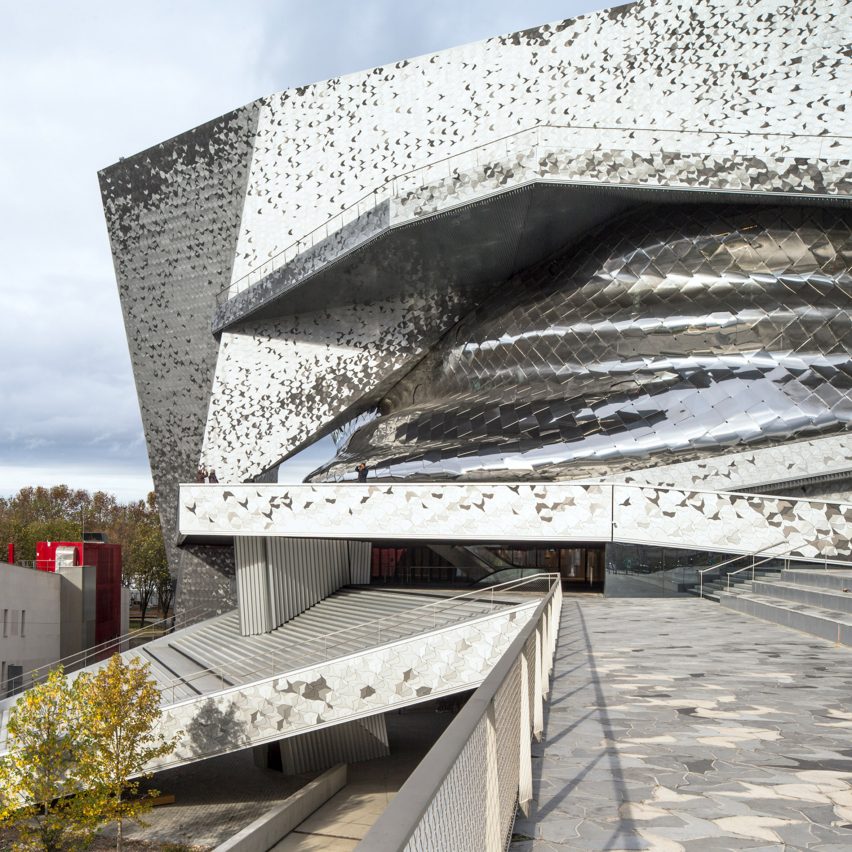
Philharmonie de Paris, France, by Jean Nouvel
The Philharmonie de Paris, clad in interlocking bird-shaped aluminium tiles, opened two years late and three times over budget.
Architect Jean Nouvel and the building management became engaged in a legal showdown over the handling of the project. Nouvel had unsuccessfully filed a court order in 2015 attempting to distance himself from the project, insisting his name be removed from the project as the unfinished building was "non-compliant" with his plans.
Two years later, Nouvel was slapped with a huge €170.6 million fine by the concert hall owners and then countersued in 2019, calling the figure "totally disproportionate". The matter was reportedly settled in October 2021.
Read more about Philharmonie de Paris ›